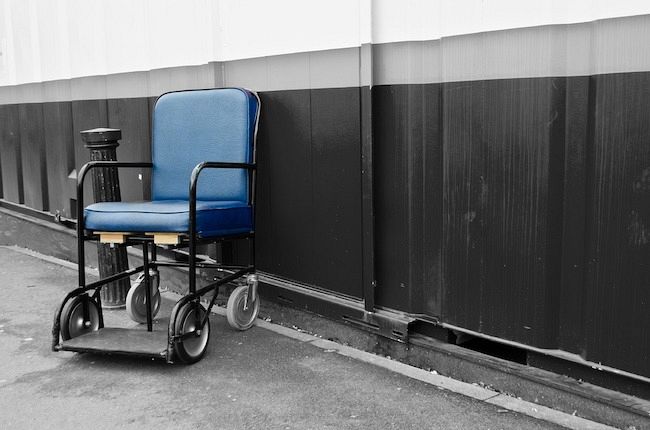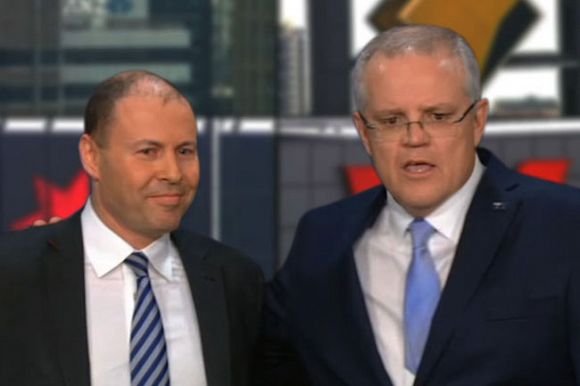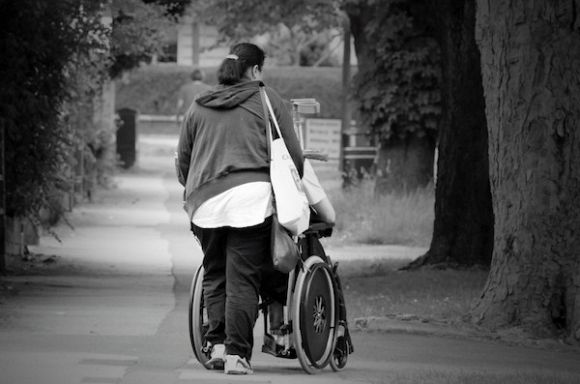The NDIS is pumping feel-good stories through social media channels at a robust rate, but for many, there is a massive gap between these accounts and actual service delivery, writes Fi Peel.
AS A LIVED-experience recovery collaborator, peer workforce supervisor, co-design consultant and National Disability Insurance Scheme (NDIS) participant, I see a gaping disconnect between the vision of 'choice and control' embedded in the design of the scheme and how this aspirational ethos translates to direct service delivery.
Hardly a week in my life goes by where I am not speaking with other participants who share similar struggles.
While the NDIS is pumping feel-good stories through its social media channels at a rate of knots, trying to keep participants informed of positive changes it is making in light of the reported ‘400 per cent increase in complaints about NDIS plan cuts to the Administrative Appeals Tribunal’, evidence is clear: real-world change that makes a lasting difference remains slow to activate.
The growing sense of individualism we collectively began cultivating in 2020 has created greater ripple effects than the NDIS could have ever foreseen. A fledging workforce already overcommitted to the delivery of services for more participants than there were workers to go around, plus the widening impacts of social isolation, has left participants even more vulnerable to experiencing access barriers, even in their own homes.
Warnings of “worker stress and burnout” – issued way before the phrase “zoonotic jump” was even on the lips of epidemiologists – have gone unheeded.
The personal impact of the increasing demand for services in a fluctuating service delivery market has left me stunned, horrified and wondering if I should seriously consider leaving the scheme entirely.
Since the inception of my plan three years ago, it has remained unutilised while I have slept in domestic violence refuges; moved 20 times to avoid homelessness; lost business revenue and employment income streams that I cannot reclaim, and incurred thousands of dollars of out-of-pocket expenses where I had been guaranteed the NDIS would cover the costs.
I have also endured hospital admissions which, had NDIS service provision proved reliable, I would not have otherwise needed and on multiple occasions, I have been forced to stop receiving services due to misappropriation of funds and fraudulent activity on the behalf of providers.
In his address to the National Disability Summit last week, Federal Minister for the National Disability Insurance Scheme Bill Shorten stated that in his time as Junior Minister for Disabilities 14 years ago he had learned that:
“it is not your impairment, which is the barrier. It’s the barriers which other people in a system puts in your path to live an ordinary life.”
While it is great that Shorten understands the social model of disability as distinctly different in its approach to the medical model of disability, I think the workers who have been invited into my home to collaborate with me on my own self-determined journey of psychosocial recovery might have missed the memo.
One worker who let herself into my home for a shift while I was sleeping looked up from the Netflix show she was watching – while sprawled across my couch – as I emerged from a nap necessitated by gut pain and asked:
"Do you have a letter from your GP that says you are allowed to have an afternoon nap?”
Another worker who arrived for a sleepover shift quipped:
"Last time I was here you had your dinner at 7 pm but it is now after nine and you haven’t eaten — let’s fix that, shall we?"
While I prepared an online presentation for a mental health reform conference I was speaking at, two workers, during handover – and well within hearing range, even for a person with the conductive hearing loss that I live with – said:
“Fi has been really well behaved during this shift.”
The piece de resistance, though, was the feedback I had from an organisation I had emailed to cease services after confirming that the provider now needed to be reported to the NDIS Quality and Safeguards Commission for fraud investigations.
The nominated complaints handler replied in an acknowledgement email that, while saddened to hear of my decision, they understood that the arrangement was no longer “mutually beneficial.”
My “disability” as defined by NDIS assessment processes is now translated by those who deliver services steeped in medical modal definitions of deficit.
Sadly, not only does almost every service provider I have ever worked with over the past few years assume my capacity via their perception of my “impairments”, but their unqualified assessment of my psychosocial distress has become their assumed right as well as their financial gain.
Social psychologist Hugh Mackay argued at the start of the pandemic that the extraordinary nature of global isolation may be the crucible in which a greater sense of altruism might bubble over.
Insofar as the burgeoning of frontline workers who have discovered that any sole-trader provider with an ABN can charge a minimum of $57.23 per hour plus kilometres to drive me to work with no regard as to where my wheelchair is in relation to the car door as it is slammed closed – catching my already inflamed knee and sending pain ricocheting through my spine – the current economic crisis at hand appears to favour self-service rather than the hoped-for altruism.
Disability has become a profitable commodity and countless lives, including my own, continue to be plundered at the behest of the agendas of those who argue they are there to help.
We need to focus our attention not simply on the syndicated crime rings that sensationalist journalism has pushed into the media cyclebut on the registration, regulation, training, accountability and sustainable development of a workforce that empowers the living of “an ordinary life”.
Contrary to Hireup CEO and founder Jordan O’Reilly’s fears that "the fastest-growing part of the Australian disability sector is unregistered and effectively unregulated", the situation is already out of hand for many.
We must stop saying to participants that “bad help is better than no help at all”. That is not "choice and control". It is the antithesis of empowerment.
Fi Peel (they/them) works independently as a lived-experience mental health recovery specialist. You can follow Fi on Twitter @fi_peel.
Related Articles
- Ripped off: NDIS users failed by clueless Coalition
- Federal Budget offers little for people with disabilities
- How support for disability can enable us all
- The NDIS leaves workers behind
 This work is licensed under a Creative Commons Attribution-NonCommercial-NoDerivs 3.0 Australia License
This work is licensed under a Creative Commons Attribution-NonCommercial-NoDerivs 3.0 Australia License
Support independent journalism Subscribe to IA.














